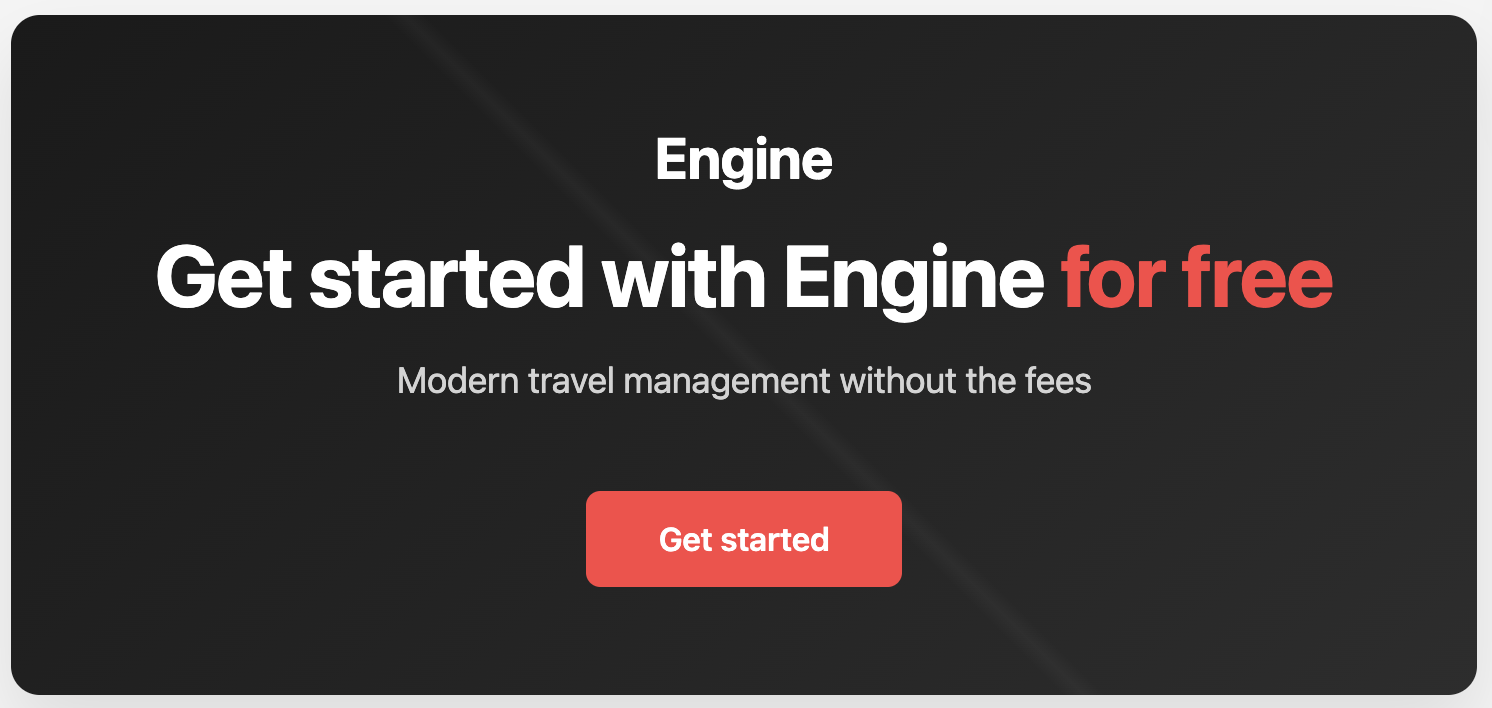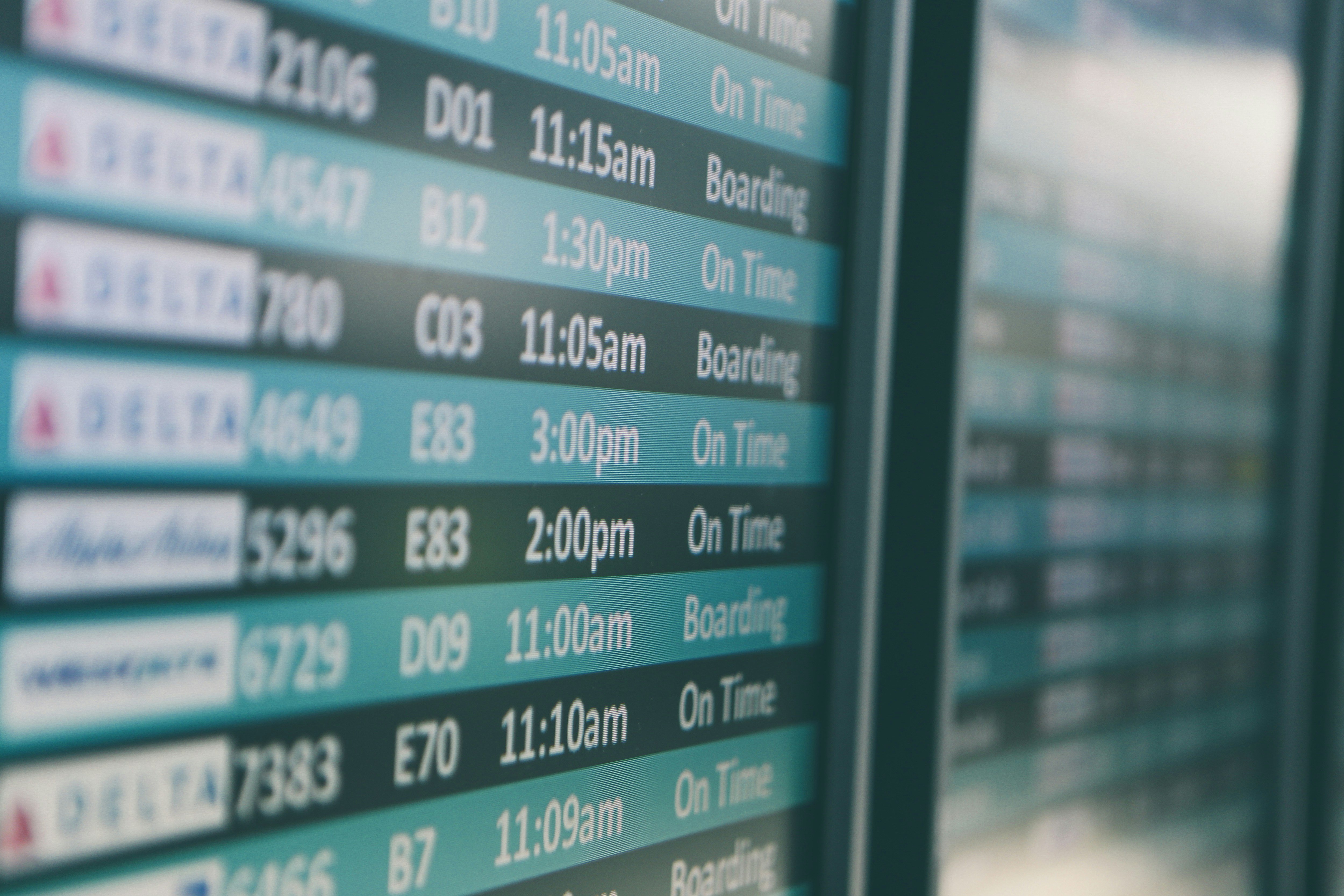Business Travel Payment Solutions Made Simple

Your crew is stranded at 10 PM. The front desk needs a card for incidentals, but half your team doesn't carry personal cards. Meanwhile, Finance is buried in unmatched invoices, missing receipts, and overdue reimbursements, wasting hours trying to sort it out before month-end.
The problem: Traditional consumer travel sites don't work for teams running crews across 15+ job sites.
Without a proper payment solution, you're not just losing time; you're bleeding money on out-of-policy bookings, slow reimbursements, and labor costs that never show up on your project reports. The right payment solution kills the receipt chaos, the credit card hassles, and the cleanup nightmare in one move.
Why Traditional Payment Methods Fail Project-Based Teams
Using consumer payment methods creates four problems that get worse every day:
- Losing good crew members costs you way more than any hotel bill. Crews pay for hotels out of their own pockets, which drains their cash. Good workers start looking for a company that doesn't make them wait three weeks for reimbursement. When turnover hits mid-project, you're paying premium wages to replace experienced workers who left because of reimbursement delays.
- Physical credit cards are a hassle for you and the crew. The physical card isn't at the hotel, but the front desk won't give out keys without authorization. Your foreman stands there for 20 minutes while you try to fax forms or call them back. That's 20 minutes of billable labor wasted on administrative friction instead of actual work.
- Thirty separate hotel bills show up at month-end. Finance manually assigns every single expense to a project code. Someone keys in the wrong number. Your project cost reports are now wrong. When you bill the client based on bad data, you either undercharge (losing margin) or overcharge (losing trust).
- Labor waste costs even more money. If Finance spends 15 hours a month cleaning up travel expenses at a cost of $50 an hour, you're burning $9,000 a year just on labor. That doesn't count the errors, the morale hit from slow reimbursements, or the project reports you can't trust. That's $9,000 you could invest in equipment, training, or crew bonuses that actually improve project outcomes.
The problem is using personal payment methods for business. Here's the two-part fix that stops it at the source.
The Two-Part Solution: Direct Billing + Incidental Coverage
A good travel payment solution has to fix both the billing problem and the check-in hassle. You need direct billing to kill the reimbursement chaos and incidental coverage to get rid of credit card friction completely.
Direct Billing Pays Hotels Directly
Direct billing means your company pays the hotel through a consolidated invoice. No employee credit cards involved. No reimbursement requests. No receipt collection.
The process is simple. The crew books the room. They check in and check out. The traveler never touches their wallet. Finance gets one line item on the monthly invoice, already coded to the project.
Engine builds this consolidated billing right into the platform; every booking across every job site shows up on one monthly statement.
The immediate benefit hits your cash flow and your team's time. Crews can focus on work instead of worrying about when their money is coming back. Finance closes the month in hours, not days. Direct billing isn't corporate credit cards, it removes cards entirely. Without direct billing, you're asking workers to loan the company money interest-free while their own bills pile up—that's how you lose your best people to competitors who handle payment properly.
Incidental Coverage Provides Seamless Check-In
A foreman arriving after a long drive needs a 2-minute check-in, not a 20-minute authorization mess. But hotels always need a card on file for incidentals: parking, resort fees, room service, or damage. Even with direct billing, front desk staff require something on file before handing over keys.
Incidental coverage solves this. The platform covers those charges upfront and bills your company later. Your crew shows their ID, gets their keys, and goes to the room. No authorization forms. No calls to the office. No standing in the lobby at 10 PM.
Engine handles this with built-in controls. Set limits by role to prevent that "$500 room service" surprise. Field crews get $50 a day for incidentals. Project managers get $100. The system blocks anything over the limit.
Without incidental coverage, that same foreman calls you at 11 PM because the hotel won't release the keys—now you're both awake, frustrated, and wasting time that should be spent sleeping before a 6 AM job start.
Keep in mind, Direct Bill and Incidental Coverage are separate features. You'll need to enable both to eliminate payment friction entirely.
How It Works: Automated Tracking + Proactive Controls
Business travel payment solutions only deliver value when you can track spending and enforce budgets in real time. The workflow matters as much as the payment method.
Tag Every Booking to the Right Project Automatically
Manual expense coding after the fact wastes time and creates errors. Smart business travel payment solutions tag bookings to job codes at checkout—before the trip even happens.
Engine builds project-code tagging right into the booking flow. Your Ops Manager books a crew for the Johnson site. She selects "Johnson-Phase2" from a dropdown. Every charge automatically tags to that budget. No spreadsheets, no data entry, no missed allocations.
Month-end reporting is completely changed. You pull the project expense data in five minutes instead of wasting 15 hours sorting receipts. You export directly to your ERP system. The integration stops you from entering the same data twice.
You get accurate project cost data without the paperwork hassle. You know exactly what each job is spending on rooms as it happens. Project managers make better calls because they trust the numbers. When project costs are accurate in real-time, you catch budget overruns early enough to adjust scope, negotiate change orders, or reallocate resources—not three weeks later when the damage is already done.
Enforce Spending Limits Before Money Moves
The old way of expense reporting catches overspending after the money is gone. You can't get it back. The damage to your project margin is done. That $200 hotel room that should have been $120? You just lost $80 in margin that goes straight to the bottom line.
Smart payment solutions like Engine enforce policy at the time of booking. Set rate caps by role—crews at $120 a night, managers at $150. The system only shows hotels within those approved rates. If someone needs to go over the limit, they ask for approval before checkout, not after.
Engine enforces these limits while keeping things flexible. Your crew still chooses their favorite hotel within the rules. They get autonomy. You get budget protection.
Track spending against job budgets in real time. Stop spending that shouldn't happen instead of finding it during the month-end close. Policy enforcement at booking protects your project margins before the money leaves your accounts.
Real Refunds vs. Platform Credits: Protecting Project Cash Flow
Many platforms talk about "flexible cancellation" but only give you vouchers instead of cash. Those vouchers lock your money up for future travel. That doesn't help your Q3 project budgets when the job got canceled in Q2.
When weather delays a site and you cancel $8,000 in hotel bookings, you need that cash back in your operating account; ready for the next project. Vouchers just keep your $8,000 stuck in someone else's system. Credits might work for airlines with predictable travel patterns, but project-based work demands cash refunds because your next booking might be six months away—or in a completely different city where those credits can't be used.
Project work means constant cancellations:
- Weather delays on construction sites.
- Equipment delivery is late.
- Client schedule changes.
- Permit delays.
Your payment solution has to handle this reality.
Engine's optional FlexPro protection guarantees refunds, even on bookings that hotels usually mark as non-refundable. FlexPro is Engine's premium subscription ($2,000 annually or $200 monthly) that covers cancellations up to noon on check-in day and modifications up to noon on checkout day. You get actual money back or flexible travel credits added to your Engine account—not restrictive credits locked to specific dates or destinations.
Calculate the ROI: If you cancel just two $4,000 crew bookings every quarter, you're risking $32,000 a year. Spending $2,000 to protect $32,000 is a 16x return, and that's being conservative. Without FlexPro, that's $30,000 in lost cash flow that could have covered payroll, materials, or emergency repairs instead of sitting locked up as unusable travel credits.
Real refunds and flexible credits protect your cash flow. Traditional travel credits just create accounting headaches. Always check the cancellation and refund terms before choosing a solution. It impacts your project budget directly.
Implementation Checklist: Your 30-Day Rollout Plan
Switching payment systems sounds like a chaotic month. It doesn't have to be. This four-week plan gets you set up, tested, and trained so your team adopts the new system without disrupting active projects.
Week 1: Assessment & Setup
- Audit the current payment mess and find the worst headaches.
- Calculate the time wasted on monthly cleanup (this is your baseline).
- Set up direct billing.
- Configure the custom fields to match your project codes.
Week 2: Policy Configuration & Testing
- Define the rate caps by job role.
- Set up approval workflows.
- Enable incidental coverage options.
- Test the entire booking process with a small pilot group of 3-5 travelers.
Week 3: Train the Team
- Train Ops Managers on booking with project tags.
- Show Finance the consolidated invoice format.
- Demonstrate the refund request process.
- Document the steps in a one-page quick guide. Don't overcomplicate this.
Week 4: Full Rollout & Measurement
Launch company-wide and track these metrics:
- Time Saved: How much reconciliation time was cut (compared to Week 1).
- Reimbursements Killed: The number of reimbursement requests eliminated.
- Budget Variance: How much budget was saved by the project.
- Cash Flow: Actual refunds received and flexible travel credits.
Stop the Payment Chaos Before Next Month's Close
You don't need another month of Finance drowning in receipts while crews wait for reimbursement. Direct billing consolidates everything into one invoice. Automatic project tagging kills manual data entry. Incidental coverage removes credit card friction at check-in. Real refunds protect your cash flow when projects shift.
Pick a payment solution that delivers all of this in one platform. Scattered systems just recreate the same problems with different vendors.
Start with one project. Measure the time you save on cleanup. Scale when you see the numbers.
Stop Chasing Receipts. Get One Consolidated Invoice. Engine's direct billing gives you total control over every booking and dollar spent with zero payment friction.

FAQs
How long does Direct Bill approval take?
Direct Bill needs a credit review that usually takes 3-5 business days after you apply. You can start using Engine with credit card payments right away while the Direct Bill application is processed.
Does Engine work with our existing software?
Yes. Engine integrates with major ERP systems like Sage, Jonas, Viewpoint, and QuickBooks through direct data exports. Finance can pull project-coded expense data and import it directly without any manual entry.
Can our crews still use their preferred hotel chains?
Yes. Engine's platform has over 800,000 hotels across all major chains. Your crew can still earn loyalty points when booking through Direct Bill. They choose their preferred hotel within your set travel policy rates.





.jpg)

.jpg)


.avif)


.avif)














![What is an OBT? [+ Why They Matter]](https://cdn.prod.website-files.com/66a41388b1be9ba182f1e80c/66f97c4190ac5e26bea90c05_66a41388b1be9ba182f1efc0_online-booking-tool.avif)



